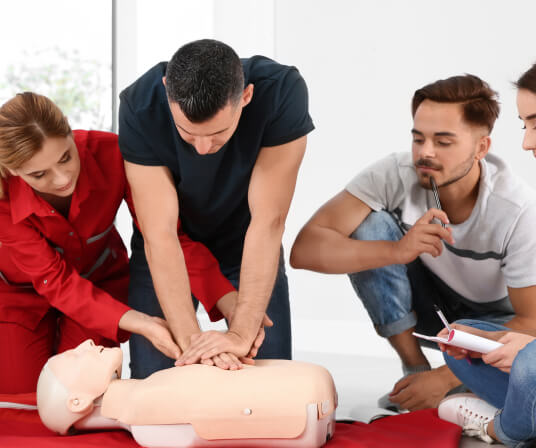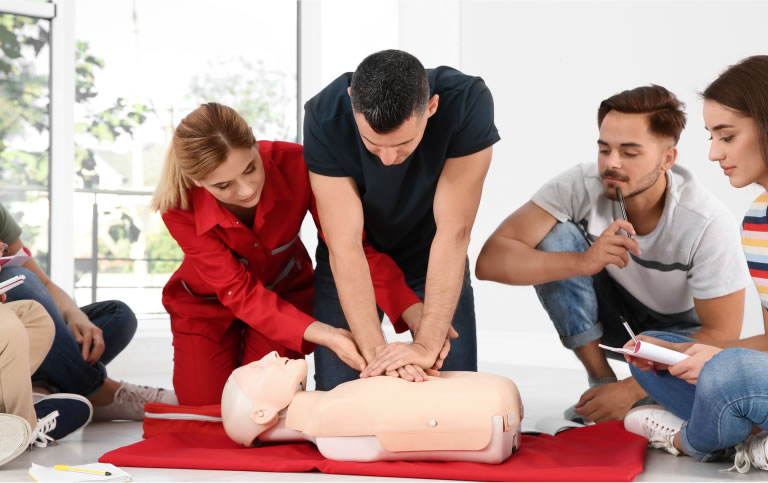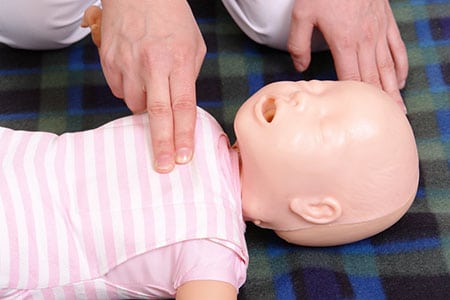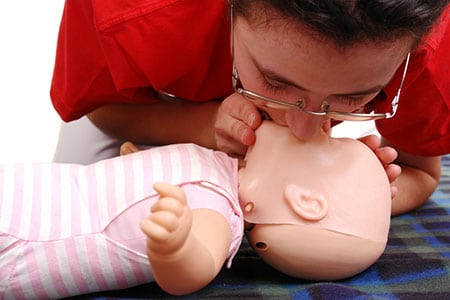CPR, First Aid, BLS, ACLS, PALS certifications.


$49.95 $59.85
| Chapters | CE Credits | Validity | Cost | Duration | ECC | Exam Attempts | Wallet Card |
|---|---|---|---|---|---|---|---|
| 31 | — | 2 Years | $49.95 | 2 Hrs | Compliant | Unlimited | Download/Print/Mail |
Usually an infant’s heart stops because of a breathing emergency. For this reason, giving breaths with compressions is very important for infants.
The process for responding to an infant is the same as responding to a child except for the following:

